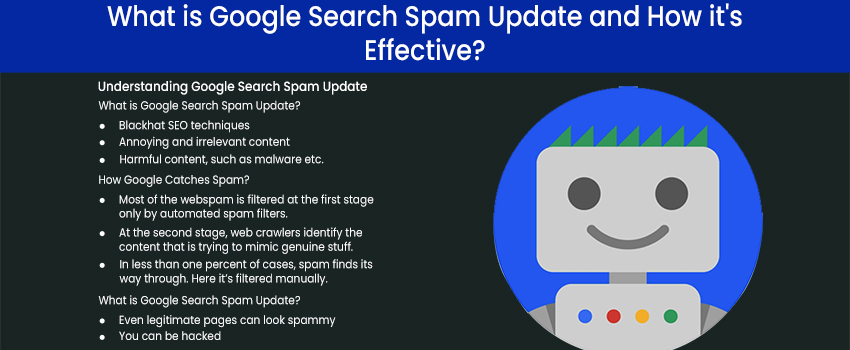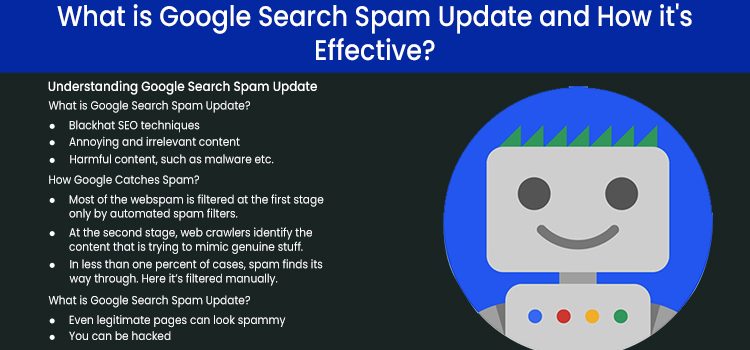What is Google Search Spam Update and How it’s Effective?
We have been hearing about a lot of updates from Google recently, right? But that’s what the search engine does for its users. And that’s what makes it one of the best. Now, if you are a website owner, it’s important for you to stay up to date with this shower of updates. After all, they are gonna affect you in the end.

With that being said, have you heard about one of the very recent updates by Google? Google Search Spam Update. The update in Google’s algorithm was made on June 23rd and 28th of 2021.
But is it going to affect you?
Let’s begin the conversation from scratch.
Understanding Google Search Spam Update
Okay, good things first. If you are worried this update is going to affect you or your business in some way, as long as you are legitimate, don’t. Unlike, some other major updates of 2021, such as core, page experience or product review updates, it’s not going to impact any legit website. Instead, its main focus is to eliminate fishy websites from ending up on the SERP.
However, even if you are authentic, it’s good to know what’s it all about.
What is Google Search Spam Update?
In simple words, Google Search Spam Update is a step by the search engine to avoid any webspam ending up on the results page.
But what exactly is webspam?
We can define a webspam as a type of digital content that attempts to mirror secure and legitimate websites but does not really deliver up to it. Some of the examples of webspam include:
- Blackhat SEO techniques
- Annoying and irrelevant content
- Harmful content, such as malware etc.
The world wide web is full of malicious scammers and criminals. But search engines like Google and others constantly try to block them from reaching the users, hence such updates.
How Google Catches Spam?
There are steps that Google follows to identify webspam.
- Most of the webspam is filtered at the first stage only by automated spam filters.
- At the second stage, web crawlers identify the content that is trying to mimic genuine stuff.
- In less than one percent of cases, spam finds its way through. Here it’s filtered manually.
Should You be Worried?
Not really (But again, only if your website is legit). Google says that if you are doing everything in line with their policies and guidelines, you’ll see no negative effects on your rankings.
However, you still should understand the risks that you may face online. Here are a few things you should know:
- Even legitimate pages can look spammy
Yes, even if your intention is all pure, manual action may be taken against you. Now, if it happens to you, you do not need to worry. Just check your manual action report in Google Search Console and you’ll find out why it happened. Sort things up and you’re good to go.
- You can be hacked
You must not take it lightly as there are a lot of hackers online that can inject your website with all sorts of spammy content.
The best thing you can do here is to not get hacked at all. Make sure you’re using strong passwords. Do not miss security updates. And make good use of social engineering.
All in all, just make sure your website is legitimate and secure, and nothing’s gonna go bad for you due to the Google Search Spam Update. Don’t know where to get started? Webfactor is here to help you. Contact us to get a quote.


